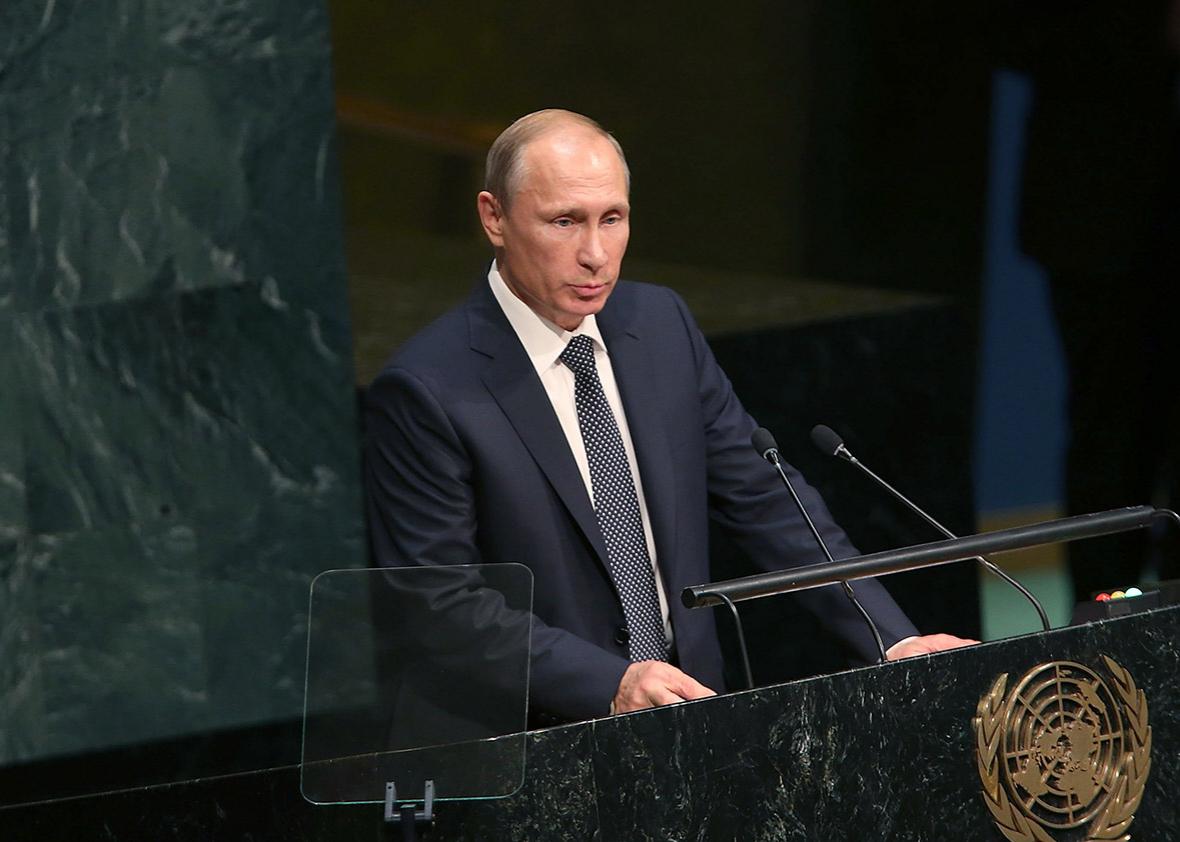The World Public Forum’s “Dialogue of Civilizations” meets every year on the Greek island of Rhodes, under the patronage of its founder, Vladimir Yakunin. Until recently, Yakunin was the chairman of Russian state railways and a close ally of the Russian president, Vladimir Putin. Now he has been ejected from Putin’s inner circle, but he still opened the forum in Rhodes earlier this month. When asked, he angrily denied rumors that a hushed-up corruption scandal had led to his fall from grace. Only an “idiot or a provocateur” could possibly say such a thing, he told a reporter from Politico. A few minutes later, he showed the same reporter his 140,000 euro ($159,000) watch. “If you want to buy something, what’s wrong with that?”
The forum also continued, as in the past, to gather people willing to endorse Russian views of the world. There was Václav Klaus, the former Czech president, who called Putin’s Syrian adventure a “logical step.” There was John Laughland, political director of Russian-backed think tank the Institute for Democracy and Cooperation, who argued that the European Union was conceived by the CIA, as part of an American plot to subjugate Europe. Plus dozens of others, from all around the world.
Once upon a time, we had a vocabulary to describe organizations like the forum or the Institute for Democracy and Cooperation. During the Cold War, we spoke of “front organizations,” such as the World Federation of Trade Unions or even the American Communist Party, that were allegedly independent but secretly supported with Soviet money. Such groups were run by “agents of influence”—people who knowingly promoted the interests of the Soviet Union inside the West—or “useful idiots,” people who did the same thing, unconsciously, usually out of ideological naiveté.
But times have changed, and direct parallels cannot be drawn. Klaus, who is not an idiot, doesn’t hide his financial links to Moscow. The forum does not hide its links to Russia, either. Instead, they both seek openly to legitimize the anti-NATO, anti-European, anti-Western views of the Russian elite. In a bid for respectability, the forum’s website even displays the many logos of its distinguished “partner” organizations from around the world. Not all of these partnerships are real: A spokesman for the Council on Foreign Relations, whose logo appears on the site, told me that it does not support the forum at all. But if you were just glancing, you’d never know it.
Even harder to categorize are the actions of some genuinely legitimate politicians. For example, both Andrej Babis, the Czech finance minister, and Milos Zeman, the Czech president—once a regular at the forum—frequently echo or repeat Russian slogans, as occasionally does the Slovak prime minister, Robert Fico. In August and early September of 2014, all three argued against Western sanctions on Russia, using similar language. Zeman called them “ineffective,” Babis called them “nonsense,” and Fico called them “meaningless.” Later, they shifted their rhetoric and began to point to the refugee crisis and radical Islam as the “real” threats to Europe. “The refugee crisis threatens the Czech Republic more than Russia,” said Babis in September. “Islamist terrorism is a greater threat to Europe than Russia,” said Zeman in May.
Like Prime Minister Viktor Orbán in Budapest, all of these men have domestic political reasons for offering verbal support to Putin: They want to ride the anti–European Union, anti-“establishment” wave that has washed across all of Europe, and to capitalize on economic discontent. Since the EU began, politicians have long found it useful to blame “Brussels” for problems that they cannot fix. But there may be other motives, too. Zeman’s close adviser ran the office of Lukoil, the Russian oil company. Babis, who is also one of the Czech Republic’s richest men, owns companies which consume a good deal of Russian gas.
But I shouldn’t unfairly single out central Europeans, for there are many other Europeans who support Russian foreign policy with similarly mixed motives. Former Italian Prime Minister Silvio Berlusconi maintains both a political and a financial relationship with Putin. So does Gerhard Schröder, the former chancellor of Germany. These men aren’t idiots either—but neither are they secret agents, spies, or traitors. At the same time, they are working steadily, in their own ways, to undermine Western security and support the spread of Russian authoritarianism in Eastern Europe as well as the Middle East. So what do we call them? We need a new vocabulary for a new era.
